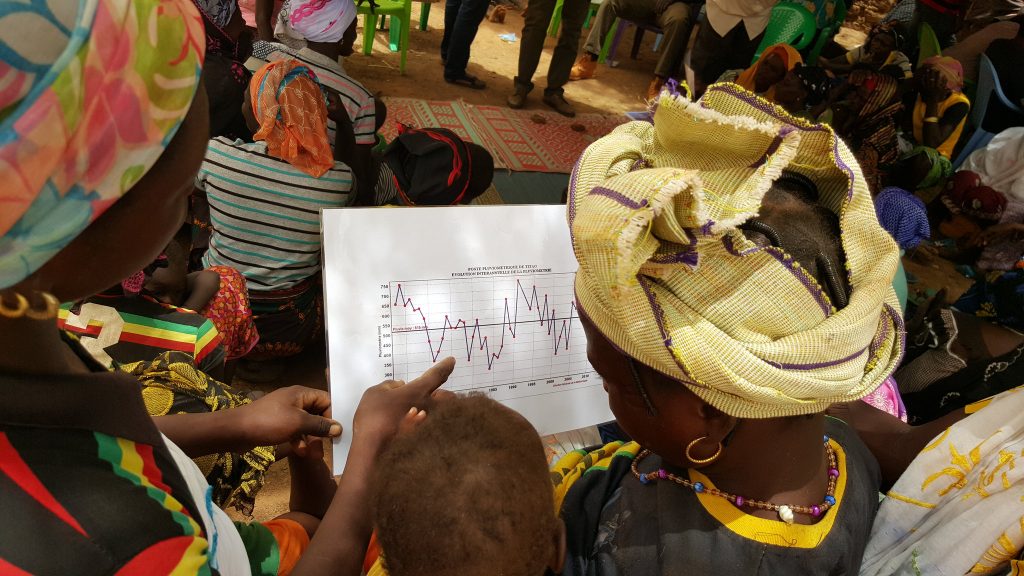Ten Years: Collaborating on Climate and Food Security

This year marks the 10th anniversary of collaboration between the International Research Institute for Climate and Society (IRI) and the CGIAR Research Program on Climate Change, Agriculture and Food Security (CCAFS). This groundbreaking partnership–between institutes representing the climate and agriculture research communities–has led to important advances that neither community could have achieved on its own.

The IRI has been a world leader in establishing climate data forecasts at the seasonal scale, which are ideal tools to support farmers in deciding which crops to sow, when to plant and when to apply fertilizer. Climate forecasts can also be used for estimating crop yields and for alerting authorities and humanitarian organizations about possible food shortages. We are now leading the way to provide sub-seasonal forecasts for more immediate action and decadal outlooks for longer-term planning and adaptation.
In the last decade, IRI has implemented effective and actionable approaches to improve adaptation of agricultural production to climate change. We’re now applying this knowledge and experience to help the governments of developing countries and international development agencies to reduce the vulnerabilities of food production systems to climate variability and change.
Since its inception, CCAFS has worked to establish outstanding research and capacity-building activities that have led to increased agricultural production and reduced food insecurity throughout the developing world. It does so by bringing together the world’s best researchers in agricultural science, climate science, environmental and social sciences to identify and address the most important interactions, synergies and trade-offs between climate and agriculture.
The collaboration between IRI and CCAFS is ensuring that improvements in food production are resilient to climate fluctuations and shocks. The partnership has generated climate information and tools that support decision making to reduce climate-related risks in agriculture. It has also implemented programs that give farmers access to financial tools such as index insurance, which transfer some remaining risks, those that can’t be managed with improved information or technologies.

This is only the beginning. Climate variability and change are ever-present threats to the food security of millions of people across the world. Working together, IRI and CCAFS will continue to build climate services that support not only food production, but all components of a country’s food system, including storage, transportation and trade. We’re assessing the use of information and communication technologies (ICT) to improve the accessibility of good climate services by extension agents working in some of the most isolated, vulnerable rural areas of the world. We’re evaluating ways to increase gender equality and social inclusion in climate-related agricultural decision making. We’re starting to focus on under-explored relationships between climate variability and the nutritional content of food. The future is full of opportunities, thanks to the bold and visionary steps taken a decade ago.
On September 25, IRI and CCAFS hosted a special event to celebrate shared accomplishments and discuss the next phase of our partnership, one we hope will raise ambitions and accelerate actions for a more climate-resilient and food secure world. See our updates of the event on Twitter.

You must be logged in to post a comment.